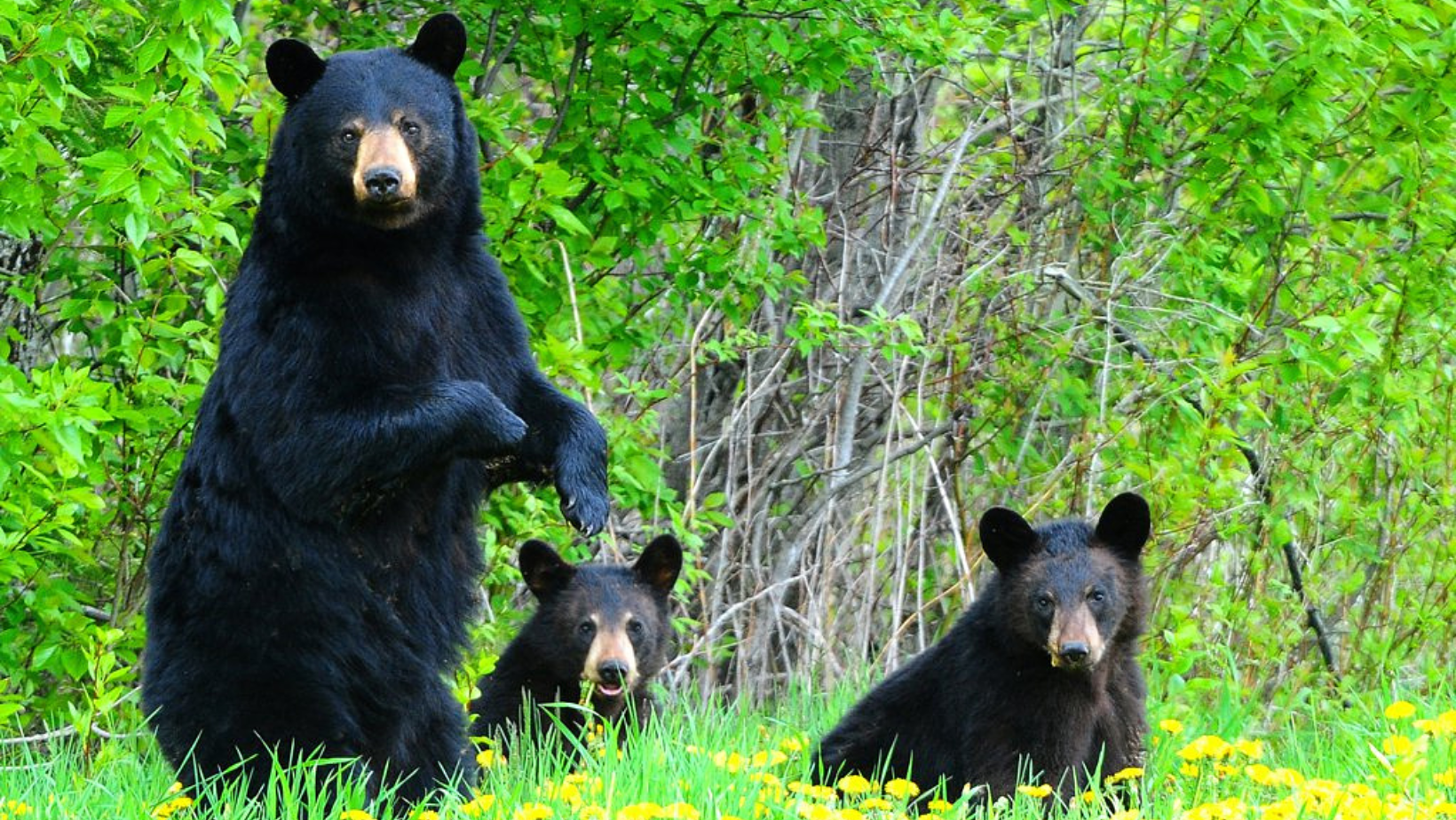Friends of Animals is asking the public to stop reporting black bear sightings to the CT Dept. of Energy and Environmental Protection and stop sending videos of black bears at their birdfeeders or tipping over trash cans to the media.
“These things are going to get bears in CT killed. Every sighting of a black bear doesn’t mean it’s a different bear. And a sighting is certainly no cause for alarm,” said Priscilla Feral, president of Friends of Animals. “But the people gunning for a bear hunt use these unscientific numbers as propaganda to support their efforts.
In 2014, for example, DEEP received more than 4,600 reports of black bear sightings. That year a UCONN study collected 734 different hair samples in the northwestern part of the state where “hair corrals” were set up, yet only 235 of those were unique bears.
“SB1148, the pending bear bill, will allow farmers who believe their crops, livestock or beehives have been damaged to get a permit to kill bears and residents to shoot bears who enter buildings. It is a bear-hunt in disguise, and it is unacceptable,” Feral said. “It does nothing to ensure farmers use electric fencing, a proven, humane strategy to mitigate interactions with bears. And it does not promote bear-resistant trash cans or taking down birdfeeders March through November, which would also keep bears wild and away from homeowners.”
FoA points out that CT DEEP already has a bear program that allows the agency to kill bears they deem “problematic.”
“Success in preventing bears from snooping around our neighborhoods and losing their wariness of people depends on changing human behavior. Cruel, random bear killings will never stop bears from being curious, opportunistic feeders,” Feral said.
Friends of Animals is working with DEEP, a trash hauler, and other stakeholders to get a bear-resistant trash can pilot program launched in a town in the Northwest corner. These programs have proven to be effective in other states.
In 2013, with grant money from the State Parks and Wildlife Department, Durango, Colo. distributed bear-resistant trash containers throughout two “treatment” areas. The experiment found a 60 percent reduction in scattering of trash by wildlife in the treated areas. And bear-related calls within Durango dropped 61 percent.
The Florida Fish and Wildlife Conservation Commission provided almost $2.1 million to offset the cost of bear-resistant containers in 16 counties with the highest levels of human-bear interactions. Preliminary findings show a reduction of conflict calls by 38.6 percent in Seminole County.

